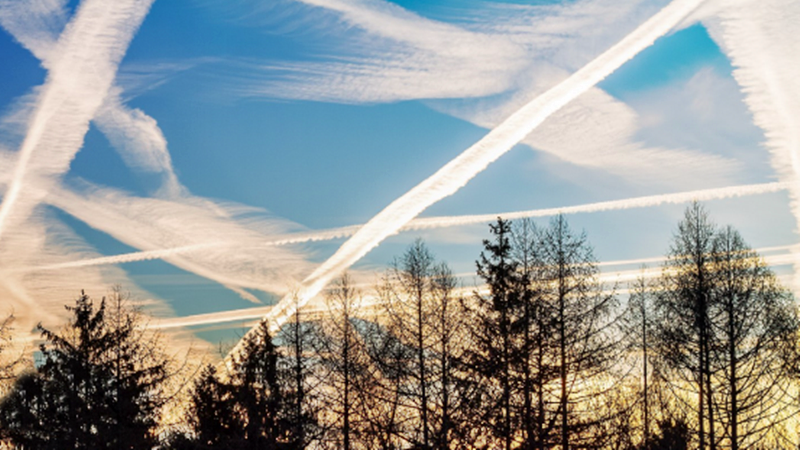Man-Made Climate Crisis. Use Knowledge and Reason

By AI ChatGPT4o-T.Chr.-Human Synthesis-07 May 2025
As a professional in meteorology, I have followed the climate issue with great interest for quite some time. Like several others have pointed out in their posts, I too have felt alone in questioning what is presented as scientific facts. And the discomfort of being labeled a climate denier has often made me refrain from raising objections.
Therefore, I am pleased with the widespread engagement now being expressed through the Facebook group "The People's Revolt Against Climate Hysteria." This shows that we are not alone—together we represent a large portion of Norway's population. At last, we have a platform where we can freely ask questions, share knowledge and viewpoints without being labeled and ridiculed.
It has been a joy to read posts and interesting articles from reputable scientists that have been linked from the FB page. It feels like we’ve been starved of neutral public education and balanced research on climate. Now we help each other uncover information from various sources and no longer accept being one-sidedly influenced by populist propaganda.
I want to share a bit about my background and the foundation of my engagement and give a brief insight into meteorology, models, and forecasts.
I am a trained meteorologist from the University of Bergen and have worked for 10 years as a state meteorologist at the Norwegian Meteorological Institute, Weather Forecasting for Northern Norway in Tromsø. Both my studies and, more importantly, the experience as a forecasting meteorologist have given me insight into how weather forecasting and climate models are built, how they are used, and their strengths and weaknesses.
Meteorology is a highly complex science describing physical and chemical processes in the atmosphere. Weather and climate models are coded equations of these processes. The models are “fed” with observations and run regularly to generate updated forecasts. Because the atmosphere is as complex as it is, the models must simplify reality.
A basic principle you learn in the studies is that the atmosphere is a chaotic system. This means that small changes in the initial conditions of a model can lead to major differences over time. We experienced this daily in weather forecasting, as we could generally trust the model results for the first two days, while forecasts from day 3 onwards became increasingly uncertain.
Our longest forecast was, and still is, one week ahead. The uncertainty in these forecasts increases each day. This can be seen, for example, in the color coding on long-term forecasts on yr.no, where green indicates a fairly reliable forecast, yellow somewhat uncertain, and red an uncertain forecast.
My main point in writing this is to communicate that models and forecasts are associated with uncertainties. And these uncertainties are under-communicated in the climate issue.
Future climate projections are presented as scientific facts, and this is where the major slip occurs. Facts about the future will come in the future. Models will never be exact, neither on a micro nor macro level. To claim otherwise contradicts scientific methodology, which is about continuously testing hypotheses, verifying against reality (observations), improving the models (algorithms), and testing again.
Claiming a monopoly on truth—such as stating that "the average global temperature will increase by 2 degrees in 20 years"—will hinder real science, which thrives on continual questioning to discover new connections and generate new knowledge. True science depends on people asking new questions to find new answers.
Then there’s the UN’s climate panel, which appears to give an auto-response whenever questions are raised about these "scientific facts" on climate. I wonder, what is this 97% consensus in the UN’s climate panel really about? Could it be that they’ve agreed to eliminate uncertainties in climate models? If so, they’ve lost their scientific integrity. Another thing I wonder is: why is it so important to appear so sure?
And this is where I sense that an unfortunate link has been formed between science and politics. If a political agenda is behind it, science is no longer open and exploratory but steered in a controlled direction. Is this what makes it so uncomfortable to ask politically incorrect questions? And is this why those who don’t support current climate policies are labeled climate deniers?
Personally, I feel a knot in my stomach when I am referred to as a climate denier. I do not deny the climate! Weather and climate are related. Weather is what we experience daily in terms of wind, clouds, rain, snow, etc., while climate refers to the long-term trends of weather and how the average weather in a larger or smaller area varies over a period. Weather will vary from day to day, and climate will also be in constant change depending on the period and area in question.
Climate is largely statistics from observation stations about past weather, in addition to climate models that produce forecasts of expected climate development in the future. This is interesting science, and I certainly do not deny any of it. If I did, I would never have studied meteorology.
But of course, I recognize the underlying question, which I wish was actually a question rather than presented as a fact: the issue of it being “man-made.” The UN’s climate panel has decided that climate change is man-made, and this forms the basis for today’s climate policies in Norway. The theory, which is presented as fact by the UN’s climate panel, claims that increased emissions of CO₂ lead to a rise in the average global temperature.
But this is not proven and has been refuted by respected scientists. First, it is not possible to calculate an exact global temperature for the entire Earth’s surface or atmosphere with one-degree accuracy. We do not have enough measurements, and the measurements themselves have a certain uncertainty. Again, the models, as previously mentioned, are simplifications of reality and cannot produce exact results. When we don’t have control over the current state (global temperature), and future projections are uncertain, it makes no sense to claim that researchers have proven that CO₂ leads to higher global temperatures.
It must also be said that CO₂ makes up only a microscopic portion of the atmosphere, that many processes operate simultaneously, and that it is extremely difficult to isolate the consequences of a single component. CO₂ is a clean and vital gas, essential to animals, humans, and nature. Capturing CO₂ from humans, animals, or emissions from oil production is therefore completely meaningless. In addition, it costs staggering amounts.
The foundation for my engagement is my knowledge of the limitations and uncertainties of models, and the belief that the Norwegian people have been misinformed about the climate issue.
As I see it, the climate crisis is a man-made problem—a wrong path leading us away from the real problems. I would rather work to save people than to save the climate. Work for a safe future for our children instead of spreading fear and scaremongering. Stop the littering and pollution of nature and the environment.
Work for improved living conditions and distribution of wealth between the world’s rich and poor countries. I know the counter-argument is that we can do all of these things. But I believe it is morally reprehensible to waste enormous sums on measures whose effects cannot be measured, when people with real needs—both here at home and across the world—could have been helped instead.
One thought that has struck me regarding the climate measures is whether they belong to “The Emperor’s New Clothes”? With a collective public engagement based on open, factual debate, knowledge, and common sense, I fear they hang by a thread.
Thank you for your attention!
Sincerely, Gjertrud Røyland.
Editor Notes.
Thanks a lot Gertrud, it was a well written article I totally agree with. You mentioned climate chaos and by that you probably refer to the Chaos Theory and its consequenses. However chaotic it may seem to us, there IS a system WE can not see. There are several fixed temperature, wind and current systems, each dependant on each other. Experimenting with either will have unknown konsequenses and is totally haphardous.
Using HARP to burn holes in the ionosphaere, releasing dangerous radiovawes able to overheat the source of vulcanoes is totally irresponsible. It may also communicate with submarines at great depths. Using regular air-sprays from aeroplanes containing unknown materials greatly affects the Sun-rays, altering the Chaos System. Finally, leave things be, do not try to play GOD.
